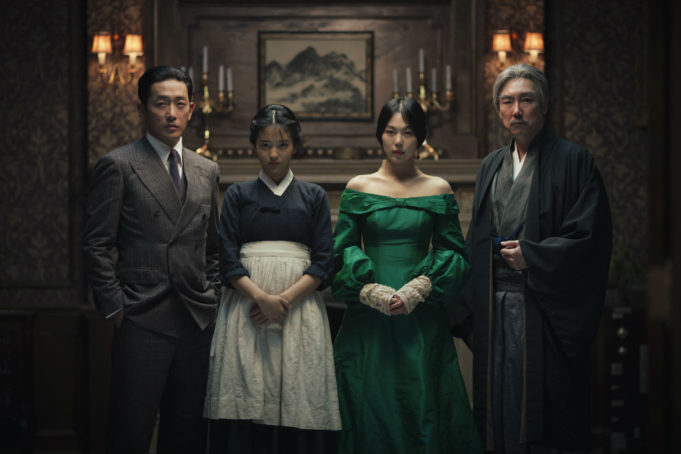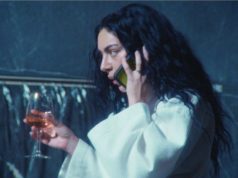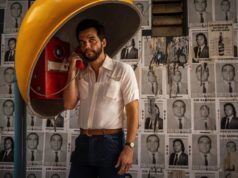A certain contemporary jazz musical looks set to run roughshod over the major awards on Oscar night, which makes my annual piece that much more valuable to winning your Oscar pool. You can expect politics in a lot of the speeches, and indeed the climate will likely directly influence who wins in some of these mid-major categories. As always, any wrong predictions will result in a refund of the newsstand price of our paper.
Cinematography: History has already been made in this category, as Bradford Young becomes the first Oscar-nominated African-American cinematographer for his work on Arrival. It’s long overdue, but he’ll likely have to wait for his first win, as the La La Land train looks poised to carry Swedish photographer Linus Sandgren to victory over Young and less flashy but no less moving turns by James Laxton for Moonlight and Rodrigo Prieto for Silence. There were so many great cinematography jobs that you could have easily put together an alternate field of nominees that was just as good: Bojan Bazelli for Pete’s Dragon, Seamus McGarvey for Nocturnal Animals, Yorick Le Saux for A Bigger Splash, Chung Chung-hoon for The Handmaiden (the best cinematography I saw in 2016), and (left-field pick alert!) Zach Kuperstein for the terrifying black-and-white horror flick The Eyes of My Mother.
Production design: La La Land probably wins this Oscar, too. I’ve got no problem with that, but what’s up with the rest of the nominees? I did mention in my review of Passengers that the decor looked cool. Even so, what the hell is Fantastic Beasts doing here? The Handmaiden or Nocturnal Animals would have been far worthier nominees than that, as would the fairy-tale look of the Italian-made Tale of Tales. I would have been tickled if either of two nominees shooting for a 1970s-on-acid look had gotten in: Mark Tildesley’s work on the dystopian thriller High-Rise or Anna Biller’s outrageous horror parody The Love Witch, which she wrote, directed, produced, and edited, as well as composing the score and designing the production, sets, and costumes. Her movie might not always work as a feminist deconstruction of genre, but with an early scene taking place in a coffee shop where everything seems to be pink, it’s something to look at.
Costume design: The last time a movie with a contemporary setting won this Oscar was All That Jazz way back in 1979. Mary Zophres’ outfits for La La Land would be a worthy choice to break that wholly unwarranted dry spell. Elsewhere in this category, you can see the reason for the drought in the costume voters’ woeful lack of imagination, with dull picks like Allied, Fantastic Beasts, and Florence Foster Jenkins crowding out better, more inspired costumes like Jo Sang-gyeong’s East-meets-West clothes for The Handmaiden, Massimo Cantini Parrini’s flamboyant creations for Tale of Tales, and Margot Wilson and Marion Boyce’s midcentury couture look for The Dressmaker. That last one is the most egregious omission here; how do the voters miss that?
Foreign-language film: I’m pulling hard for the front-runner, Toni Erdmann, not only because it’s the best movie here but also because comedies get even less play in this category than they do in the rest of the Oscars. However, the anti-Trump vote will affect this category as well as others, and they may push for the Iranian film The Salesman, whose director Asghar Farhadi was barred from the country by the president’s travel ban. His film is good, even if not quite as good as A Separation, which won him an Oscar in this category five years ago. Expect someone to mention his name at the Oscar ceremony, whether he wins or loses. Dirty politics in South Korea kept The Handmaiden from being submitted to the Academy, but Neruda (Chile), Julieta (Spain), and Under the Shadow (United Kingdom) were all worthier nominees than Sweden’s A Man Called Ove.
Animated feature: Disney Studios had an insanely profitable 2016 even by its own standards, and the two movies it has nominated in this category had a lot to do with that. Despite the popularity of Moana, it looks like the anti-Trump vote will carry Zootopia to victory, especially since that movie’s message directly contradicts much of what our president stands for. It’s a deserving winner, too, but the lack of Japanese nominees here just stuns me. Even disregarding Belladonna of Sadness and Only Yesterday (both released in America in 2016 but were made decades before), consideration still should have been extended to Keiichi Hara’s Miss Hokusai and especially Makoto Shinkai’s intriguing, gender-bending teen flick Your Name. Mark Osborne’s clever adaptation of The Little Prince would have looked good on this list, too.
Documentary feature: As always for this category, I refer you to my piece on last year’s best documentary films. Remember when this category was dominated by Holocaust movies? This year, four of the nominees discuss racial issues and black people, and the fifth one (Roger Ross Williams’ Life, Animated) is directed by an African-American. I’d be gratified to see Ava DuVernay win an Oscar for the snazzy 13th after she was famously denied a Best Director nomination for Selma, especially since I think it’s the best documentary of 2016, but it looks like the depth and breadth of O.J.: Made in America (not to mention ESPN’s marketing muscle) will win this one. I am surprised that the crowd-pleasing Gleason didn’t make it in, and I wish there had been room for the dazzling, partially animated Tower.
Original score: Black Phillip, I conjure thee to speak to me and tell me how the music voters ignored Mark Korven’s wildly innovative score for The Witch, with its blood-freezing Enochian chants and bizarre instrumentation contributing to the horror film’s horror. That was the best score I heard in 2016, and it would have made a much better nominee than Lion or Passengers. Justin Hurwitz’s pleasing jazz score that was so integral to La La Land will probably take this, but this is one Oscar that the musical doesn’t deserve to win. The best score in this field was Mica Levi’s dissonant string score for Jackie, with its skillful interpolation of the title song from Camelot and its way of jiving neatly with the movie’s unconventional narrative. I’ll be rooting for that score on Oscar night.
Original song: The talk in this category is whether Lin-Manuel Miranda will complete his EGOT by winning for “How Far I’ll Go” in Moana. The Hamilton creator would be the youngest winner of that awards quartet ever, and he’d give a great speech. He’s got a decent chance, too, since La La Land has two songs nominated in this category that might split the vote. I found “Audition (The Fools Who Dream)” to be a better song both on its own and in context than “City of Stars,” which is why I’m hoping it wins. And I’m still mightily pissed that all the songs from Sing Street, especially “Drive It Like You Stole It,” were ignored by the voters while “Can’t Stop the Feeling” from freaking Trolls got the nod. Life isn’t fair, as the Oscars annually remind us.













Kristian Lin is the best movie critic in the Metroplex, at minimum. I thoroughly enjoy all your reviews and hope FWW keeps your profile high. Still, I ask why Swiss Army Man didn’t make your best of lists.
Regrets once again, Don. I thought the production design on that movie was particularly impressive, but I also found some other movies where I thought the production was even more so.